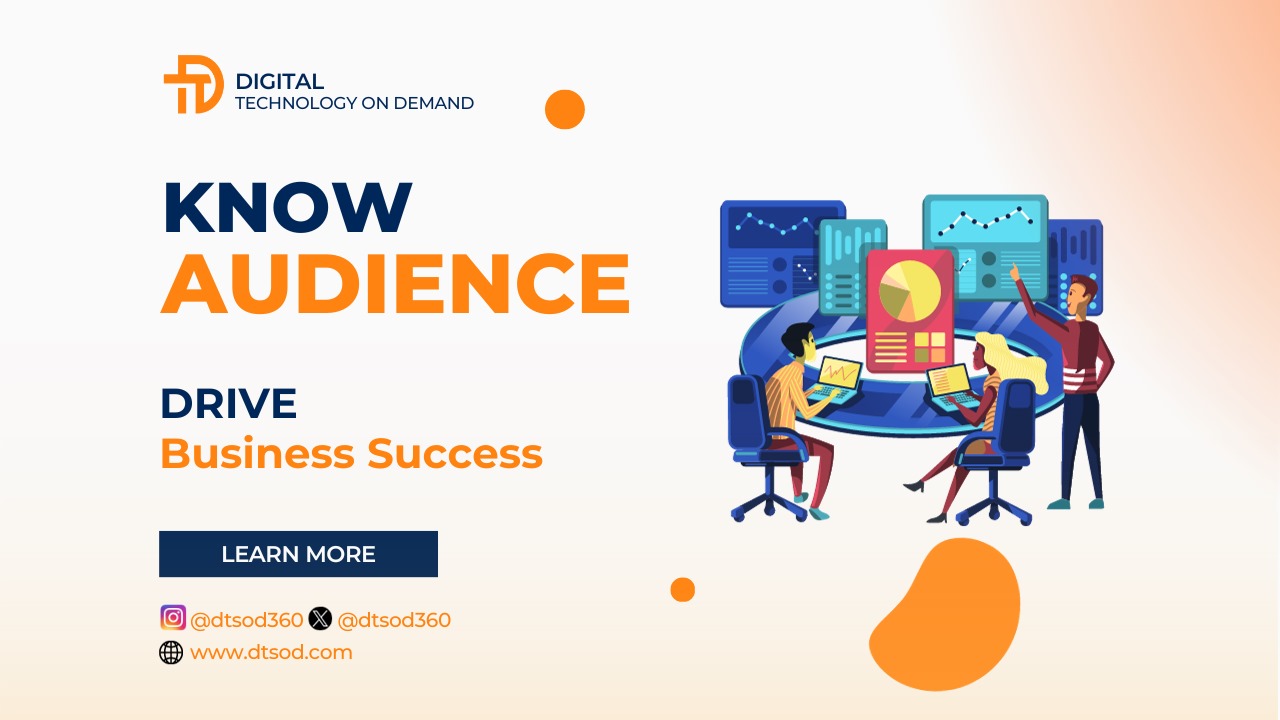From Leads to Sales: A Comprehensive Approach to Lead Generation
May 16, 2024

Nov 2, 2023
Did you know that companies that prioritize understanding their audience outperform those that don’t? According to a recent study by McKinsey, businesses that possess a deep understanding of their customers are 60% more profitable than those that don't. This highlights the strategic advantage companies gain when they align their efforts with their audience's needs and preferences.
Research indicates that an impressive 80% of consumers display a strong inclination towards purchasing from brands that offer personalized experiences. This personalization isn't limited to services alone but extends to product targeting as well. Understanding consumer behavior forms the bedrock for businesses to customize not only their services but also their products, effectively meeting specific customer demands. Such tailored approaches contribute not only to enhanced customer satisfaction but also lead to increased conversion rates and foster long-term customer loyalty.
Understanding your audience fosters an environment of enhanced productivity. Studies from the Harvard Business Review reveal that companies that comprehend their audience are 78% more efficient in their marketing efforts. This mastery enables better resource allocation, leading to improved results in marketing campaigns.
Alignment with customer expectations is fundamental for success. Research by PwC indicates that 73% of consumers point to customer experience as a critical factor in purchasing decisions. Understanding your audience helps align business strategies and goals with these expectations, ultimately improving customer satisfaction and loyalty.
Empathy is the heart of understanding your audience. Reports from Deloitte reveal that businesses with a customer-centric approach are 60% more profitable. Empathy breeds trust, enhances brand reputation, and fosters a deeper connection with customers, resulting in sustainable business success.
According to a survey by Adobe, 61% of marketers state that understanding their audience is the most critical factor in developing effective marketing strategies. Crafting impactful strategies rooted in audience insights provides a competitive edge in the market landscape.
It’s not just about demographics. Behavioral data is crucial. 74% of customers feel frustrated when website content isn’t personalized. This proficiency in personalization transforms business dynamics, creating a seamless and tailored experience for the customer.
Knowing your audience involves understanding behaviors. Statistics from Epsilon highlight that 80% of consumers are more likely to purchase when brands offer personalized experiences. Understanding behaviors and preferences shapes the personalized interactions customers crave.
In today's fast-paced market, adapting swiftly is crucial. Companies that use customer insights are 33% more likely to outperform their competitors. Navigating the competitive landscape requires a comprehensive understanding of the audience, allowing businesses to anticipate changes and act proactively.
The impact is clear: 78% of consumers will engage with offers only if they've been personalized to their previous engagements with the brand. This level of resonance can only be achieved when businesses truly understand their audience.
Target marketing and market targeting refer to the same concept of focusing your marketing efforts. Target marketing involves identifying a specific group of people (your target audience) who are more likely to be interested in what you offer. It's like aiming at a bullseye. On the other hand, market targeting is about the strategies and actions used to reach that specific group. It's the arrows you use to hit the bullseye. So, while target marketing is identifying the right group, market targeting is all about the methods you use to connect with and satisfy that group – it's the 'how' behind reaching your preferred audience. Both work hand in hand to help businesses pinpoint their ideal customers and effectively cater to their needs.
Understanding your target audience isn’t merely a choice but a necessity for sustainable business growth and success. It's not only about making profits but about building relationships, trust, and a brand that resonates with its customers. As the statistics show, investing in audience understanding is investing in the very future of your business.
Comments